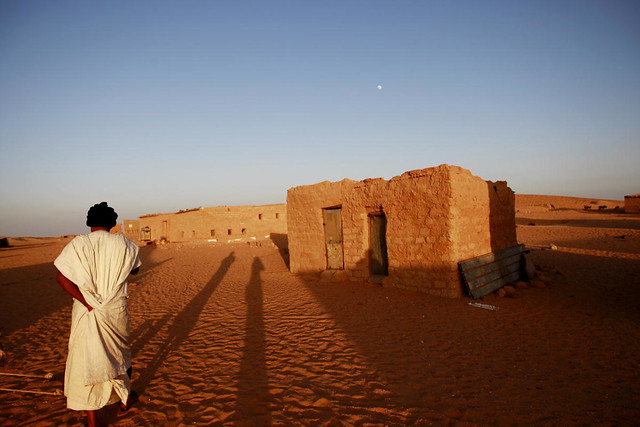Updated
Western Sahara: The Human Rights Issue and MINURSO – Robert M. Holley
Robert M. Holley
April 23, 2019

Robert M. Holley, Senior Policy Adviser, MACP
Recent news items reporting that the US delegation at the United Nations is once again promoting language that would establish some kind of human rights monitoring mechanism as part of the MINURSO mandate have left me scratching my head in utter disbelief.
Until this latest misguided effort on the part of Washington, I had promised myself that I would not draft another article on human rights in Western Sahara. I have done that many times over the years, to no avail. I have also had innumerable conversations about this topic with senior officials at the State Department and the US Embassy in Morocco, also to no avail.
I simply cannot understand why the State Department thinks it has any objective authority to address this issue. It clearly understands next to nothing about the human rights circumstances in Western Sahara. You don’t have to take my word for this. To understand why I would make such a statement you only have to read the State Department’s report on human rights in Western Sahara covering any of the last ten years.
In the first instance, let’s be clear. What constitutes Western Sahara for the purpose of talking about the status of human rights in the region? Western Sahara in this sense is both that portion of the territory governed by Morocco as well as that portion of the territory nominally under the authority of the Polisario Front.
The State Department writes a separate human rights report yearly on Western Sahara as an entry in its annual report to Congress on global human rights issues. It also writes a report on Morocco and Algeria. One would expect any objective report on human rights in Western Sahara to cover the related issues as they develop in the de facto jurisdictions of both Morocco and the Polisario. This is not the case.
You will search in vain for any description of the human rights situation in the Polisario camps in Algeria. Instead, you will read only about the human rights circumstances of that part of Western Sahara under Moroccan jurisdiction. It is as though the Polisario-run camps in Algeria simply do not exist. There is not a single sentence in the State Department’s human rights report on Western Sahara about the circumstances in the Polisario camps. I repeat, not a single sentence.
Ok, you might reason, since the Polisario camps are actually located in Algeria one might expect to find a description of human rights developments in the camps contained in the report on Algeria. Unfortunately, this also is not the case. There is nothing in the Algeria report about human rights in the Polisario camps. Again, it is as though the Polisario camps simply do not exist in Algeria for the purposes of assessing human rights in Western Sahara. But, indeed, the camps do exist and the human rights issues in those camps are significantly worse than those reported in the territory under Moroccan authority – not that one would learn anything about those circumstances in the State Department’s human rights report.
My once frequent conversations with former State Department and embassy colleagues sought to persuade them that they would have more credibility on this subject if their reporting was more objective – that is, if it covered human rights issues throughout Western Sahara and not just in Morocco. I have never understood just why this seemed so difficult for them to understand. It is, I believe, pretty self-evident.
Sometimes, former State Department colleagues would complain that it was just too difficult to assess the situation in the camps because it was difficult to get there and especially difficult to gain the kind of access to sources there that could provide relevant information. This is nonsense and frankly an unacceptably weak excuse to cover up for the self-evident bias in reporting on human rights in Western Sahara.
I frequently tried to explain to my former colleagues that they had more than enough access to first hand information about human rights in the Polisario camps if they simply took the time to visit that part of Western Sahara under Moroccan authority and interview a random selection of a sufficient number of refugees from the camps who have returned to Morocco over the last several years. There are over 8000 such people. Over 1500 have returned in the last two years. They have on-going contacts by telephone with their relatives still living in the camps and they are a wealth of clear information about what is happening there on a daily basis.
This pretended “lack of access” is not a credible excuse for not covering the egregious abuse of the human rights of those who must continue to live under Polisario rule. It also seriously undermines any argument that the United States might promote about the need to establish a human rights monitoring mechanism to MINURSO’s mandate. Why should Morocco trust the United States on this issue when all the evidence suggests that it has a clear bias in how it covers the issue of human rights in Western Sahara?
The last time the US delegation to the United Nations attempted to promote this idea of establishing a human rights monitoring mechanism within MINURSO was 2013. It was then, and has been ever since, a primary political objective of the Polisario. The Polisario is well aware of the fact that it has been getting a free ride on its human rights abuses in the camps. They only have to note the lack of coverage of their behavior in the State Department’s annual report to be comforted in the expectation that any reporting on human rights that would result from such a mission would be highly advantageous to their continuing effort to paint Morocco’s governance of the Sahara as illegitimate. It has been clear to the Polisario for many years that they can count on the silence of the United States as they attempt to exaggerate and weaponize human rights issues against Morocco.
In 2013, it was only after a very vigorous and comprehensive lobbying effort in Washington, at all levels of the US Government, before the State Department, and especially the National Security Council (where the initiative originated), were finally persuaded to drop their insistence on this issue in order to avoid doing serious, irreparable harm to US bilateral relations with Morocco. At the time, Morocco went so far as to cancel the annual US/Morocco military exercise (African Lion) and invite the US military contingent, already in country, to leave the Kingdom. It took that kind of dramatic signal to demonstrate Morocco’s resolve on its most fundamental existential foreign policy issue.
It was following this incident in 2013 that the State Department, if not the National Security Council, finally understood that if it wanted to continue to effectively pursue its de facto policy of simply maintaining the status quo on Western Sahara, it should not again pursue contentious initiatives that provoked this kind of response among any of the Parties. It served as a clear objective lesson that any attempt to maintain the status quo meant doing as little harm as possible to the core interests of the Parties.
So here we are again in 2019 with the US delegation at the United Nations apparently intent on doing a rinse and repeat of its failure in 2013. Surely, there is enough institutional memory within the US Government to recall how this ended last time around. So why is Washington repeating now what was so clearly a mistake then? One is sorely tempted to conclude that there might be some in Washington who would not be upset at blowing up the entire Western Sahara political process in the United Nations and bringing the MINURSO mission to an end. Provocations like this would be one way to accomplish that objective.
I am not going to reach any definitive conclusion about what comes next until we see what happens in the Security Council at the end of this month to MINURSO’s mandate. But there is good reason to be cautious and wary of the intentions of some of the players involved in Washington’s management of its Western Sahara policy – whatever that may be at this point.
